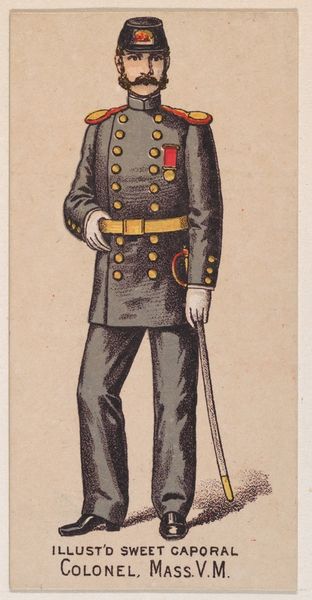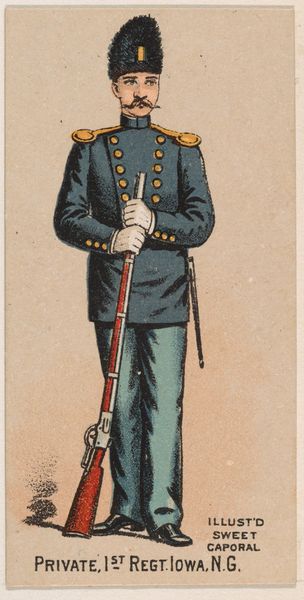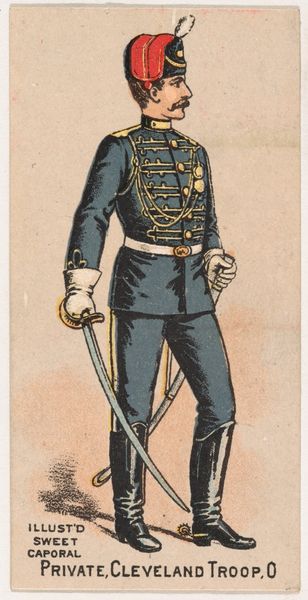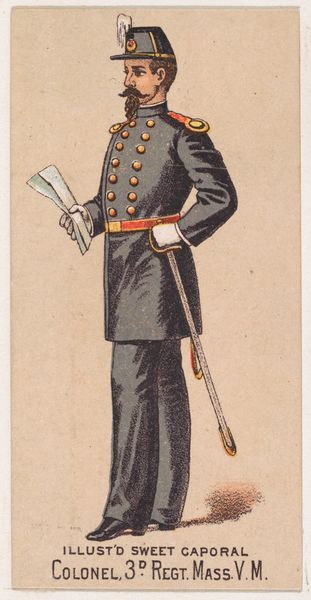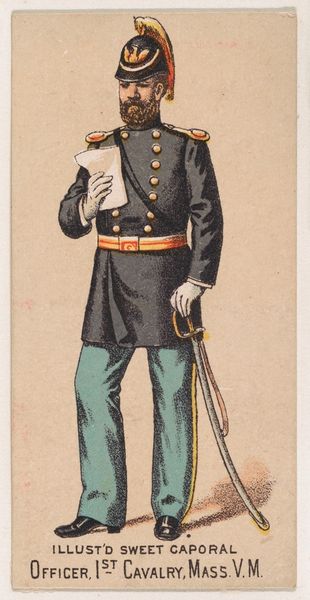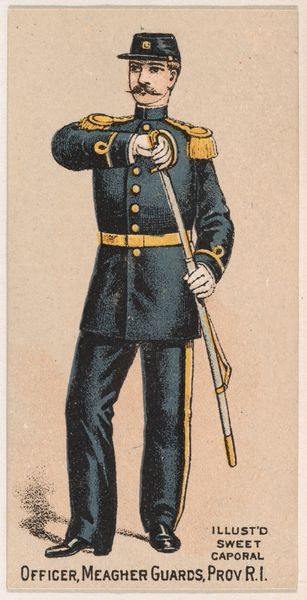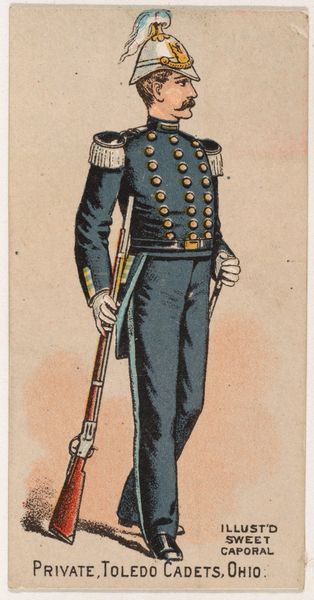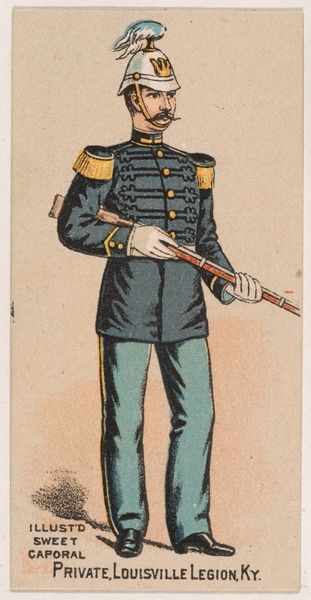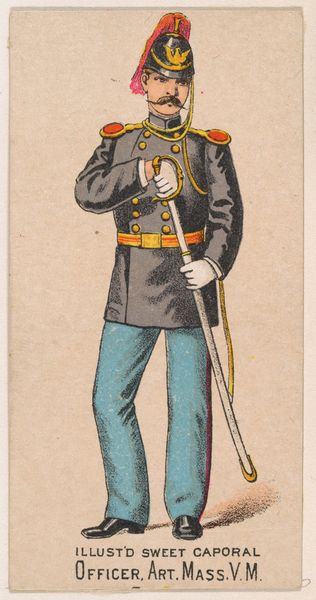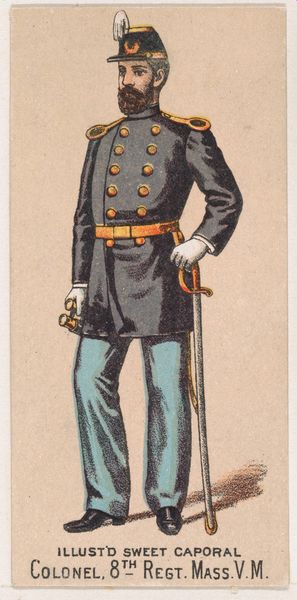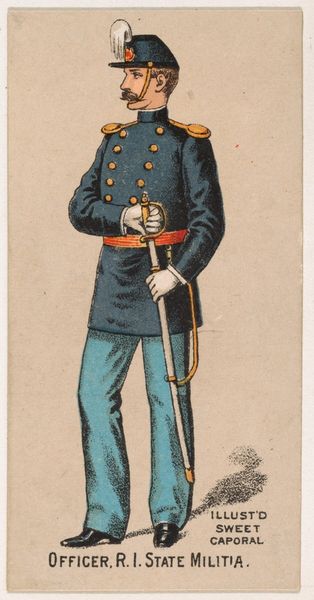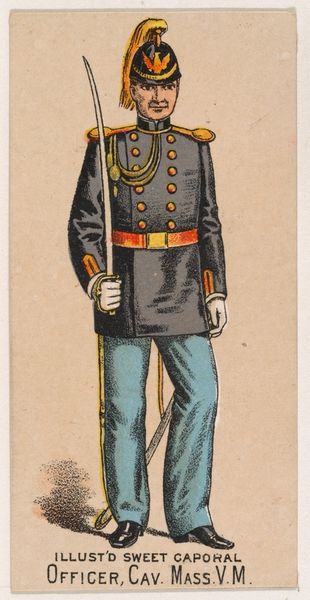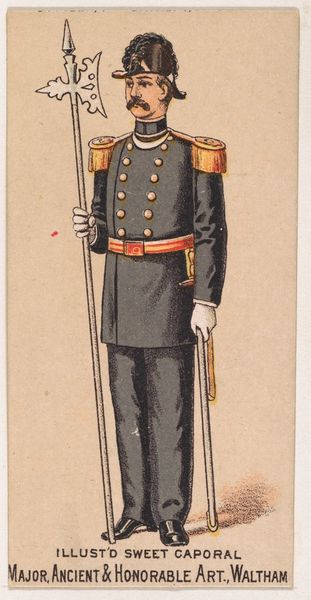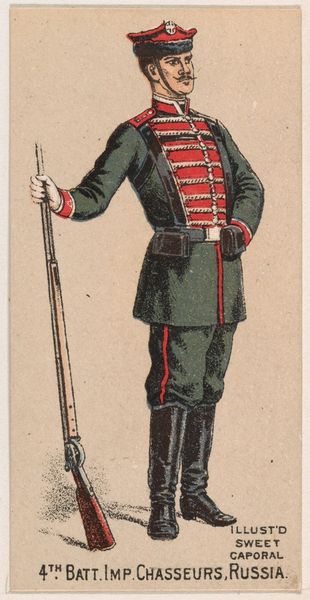
Officer, 71st Regiment, New York State Militia, from the Military Series (N224) issued by Kinney Tobacco Company to promote Sweet Caporal Cigarettes 1888
0:00
0:00
drawing, print
#
portrait
#
drawing
# print
#
caricature
#
caricature
#
soldier
#
men
#
genre-painting
#
history-painting
#
profile
Dimensions: Sheet: 2 3/4 × 1 1/2 in. (7 × 3.8 cm)
Copyright: Public Domain
Curator: Well, this is quirky. Editor: Indeed! We’re looking at an 1888 print titled “Officer, 71st Regiment, New York State Militia,” part of the Military Series issued by the Kinney Tobacco Company to promote Sweet Caporal Cigarettes. Curator: So, first and foremost, this isn’t fine art; it’s commercial art, a giveaway item to boost tobacco sales. The chromolithography is straightforward but notice the somewhat exaggerated features—it's almost a caricature, but clearly designed to appeal to a mass audience. Editor: Absolutely, and let's consider the broader context. These cards circulated during a period of heightened nationalism and burgeoning consumer culture. The military imagery feeds into that patriotic sentiment while simultaneously promoting a commercial product. The card depicts an officer, part of New York's state militia, meant to evoke a sense of civic duty. Curator: Look at the level of detail afforded to the uniform. It points to a precision, a certain pride. And in terms of production, these cards were churned out en masse—labor divided, materials sourced, distributed nationally as advertisements. Think about the paper, ink, printing presses… the whole system designed to produce and circulate these images efficiently. Editor: It’s also fascinating how these images circulated—tucked into cigarette packs, exchanging hands. They helped shape perceptions of military service. I wonder how this imagery shaped societal attitudes towards patriotism or service during a time when concepts of American identity were continually in flux. The tobacco company wasn't just selling cigarettes but participating in shaping cultural values and ideals. Curator: That’s a great point, a point of manufactured consent perhaps, cleverly disguised behind the guise of "collectible" imagery. The small format suggests it could be pocketed, passed around. And the printmaking process itself – multiple layers, separate stones, all aimed toward an aesthetic easily reproduced and quickly consumed. Editor: It encapsulates so much about that era's relationship to commerce and identity, doesn't it? Curator: Absolutely. It transforms from a simple collectible card into an artifact pregnant with contextual richness. Editor: Indeed, more than meets the eye on a first glance.
Comments
No comments
Be the first to comment and join the conversation on the ultimate creative platform.
